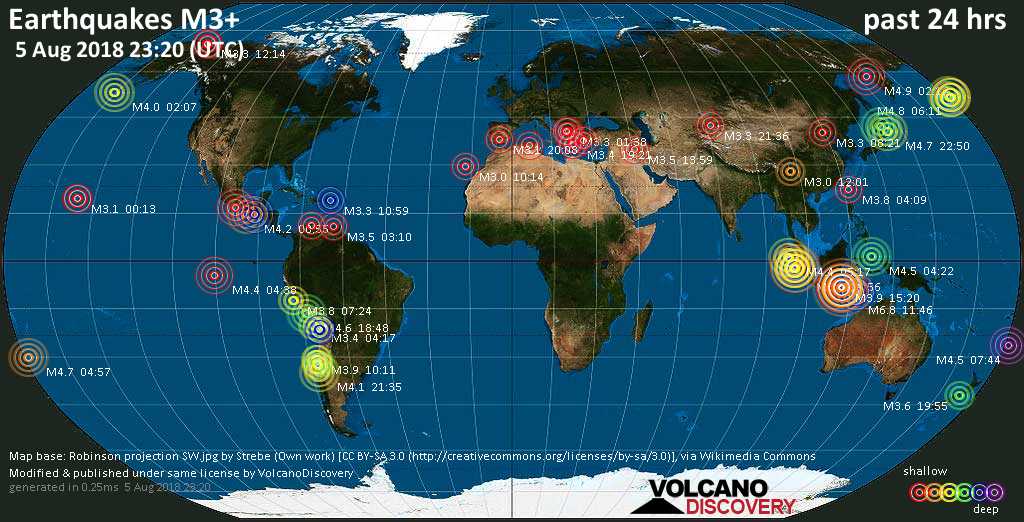News Release 18-060
Diving robots find Antarctic seas exhale surprising amounts of carbon dioxide in winter
NSF-funded Southern Ocean Carbon and Climate Observations and Modeling project obtains previously inaccessible data

Researcher Stephen Riser (left) drops a float into the Southern Ocean during a 2016-2017 cruise.
August 14, 2018
The open water nearest the sea ice surrounding Antarctica releases significantly more carbon dioxide in winter than previously believed, a new study has found. Researchers conducting the study used data gathered over several winters by an array of robotic floats diving and drifting in the Southern Ocean around the southernmost continent.
The effort is part of the Southern Ocean Carbon and Climate Observations and Modeling (SOCCOM), a six-year, $21 million-program funded by the National Science Foundation (NSF) through its Office of Polar Programs (OPP) and based at Princeton University. NOAA and NASA provide additional support for SOCCOM, and NSF’s OPP coordinates all U.S. research on the southernmost continent through the U.S. Antarctic Program.
As part of the SOCCOM project, researchers from the University of Washington, Princeton University and several other oceanographic institutions wanted to learn how much carbon dioxide was transferred by the surrounding seas. The floats made it possible to gather data during the peak of the Southern Hemisphere’s winter from a place that remains poorly studied, despite its role in regulating the global climate.
“These results came as a really big surprise, because previous studies found that the Southern Ocean was absorbing a lot of carbon dioxide,” said lead author Alison Gray, an assistant professor of oceanography at the University of Washington. “If that’s not true, as these data suggest, then it means we need to rethink the Southern Ocean’s role in the carbon cycle and in the climate.”
From data-poor to data-rich
The Southern Ocean region plays a unique role in the global climate. It is one of the few places where water that has spent centuries in the deep ocean travels all the way up to the surface to rejoin the surface currents and connect with the atmosphere.
Carbon atoms move between rocks, rivers, plants, oceans and other sources in a planet-scale life cycle. Learning the rate of these various transfers helps to predict the long-term levels of carbon dioxide.
Obtaining data from this region is extremely difficult, though. The Southern Ocean is among the world’s most turbulent bodies of water, which makes obtaining data extremely difficult. Storms in Antarctica are some of the fiercest on the planet. In winter, the circumpolar current and winds have no barrier to ripping around the continent. According to Gray, the average storm lasts four days, and the average time between storms is seven days.
Yet data from the Southern Ocean are vital to building a comprehensive global picture of how atmospheric carbon dioxide interacts with the polar oceans.
“Antarctic waters, until now, have been a data-poor region for these kinds of measurements,” said Peter Milne, OPP’s program manager for ocean and atmospheric science. “SOCCOM, using technologies that previously were unavailable to researchers, is already proving its worth by gathering information that otherwise would remain largely unobtainable.”
Previous winter measurements in the region had come mainly from ships traveling across the Drake Passage between South America and Antarctica to supply polar research stations. Those data were few and far between.
“After four years of SOCCOM, the vast majority of information about the chemistry of the Southern Ocean is coming from these floats,” Gray said. “We have more measurements from the past few years than all the decades that came before.”
Floating data
The floating instruments that collected the new observations drift with the currents and control their buoyancy to collect observations at different depths. The instruments dive down to 1 kilometer and float with the currents for nine days. Next, they drop even farther, to 2 kilometers, and then rise back to the surface while measuring water properties. After surfacing they beam their observations back to shore via satellite.
Unlike more common Argo floats, which only measure ocean temperature and salinity, the SOCCOM floats also monitor dissolved oxygen, nitrogen and pH, or the relative acidity of the water. The new paper uses the pH measurements to calculate the amount of dissolved carbon dioxide, and then uses that to figure out how strongly the water is absorbing or emitting carbon dioxide to the atmosphere.
Looking at circles of increasing distance from the South Pole, the authors find that in winter the open water next to the sea-ice covered waters around Antarctica is releasing significantly more carbon dioxide than expected to the atmosphere.
“It’s not surprising that the water in this region is outgassing, because the deep water is exceptionally rich in carbon,” Gray said. “But we underestimated the magnitude of the outgassing because we had so little data from the winter months. That means the Southern Ocean isn’t absorbing as much carbon as we thought.”
The newly published study analyzes data collected by 35 floats between 2014 and 2017. Gray is now analyzing newer data from more instruments to identify seasonal or multiyear trends, where the patterns might change from one year to the next.
“There is definitely strong variability on decadal scales in the Southern Ocean,” Gray said. “And the models are really all over the place in this region. The SOCCOM floats are now providing data at times and places where before we had virtually nothing, and that is invaluable for constraining the models and understanding these trends.”
Paper co-author and SOCCOM director Jorge Sarmiento at Princeton University said: “This is science at its most exciting — a major challenge to our current understanding made possible by extraordinary observations from the application of new technologies to study previously unexplored regions of the ocean.”
Sarmiento added that observations from these technologies have implications for understanding the global carbon cycle.
“We find that the Southern Ocean is currently near neutral with respect to removal of carbon from the atmosphere, contrary to previous studies, which suggest there is a large uptake of carbon by the Southern Ocean,” Sarmiento said. “These results can be reconciled if there is a corresponding unobserved carbon uptake waiting to be discovered somewhere else in the ocean.”
Gray conducted the research as a postdoctoral researcher in Sarmiento’s research group.
The paper with the study’s results will be published today, Aug. 14, in Geophysical Research Letters, a journal of the American Geophysical Union.
Other contributors to the paper include Stephen Riser at the University of Washington; Kenneth Johnson at the Monterey Bay Aquarium Research Institute; Seth Bushinsky at Princeton; Joellen Russell at the University of Arizona; Lynne Talley at Scripps Institution of Oceanography; Rik Wanninkhof at NOAA; and Nancy Williams at Oregon State University.
-NSF-
Media Contacts
Peter West, NSF, (703) 292-7530, email: [email protected]
Hannah Hickey, University of Washington, (206) 543-2580, email: [email protected]
Program Contacts
Peter Milne, NSF, (703) 292-4714, email: [email protected]
The National Science Foundation (NSF) is an independent federal agency that supports fundamental research and education across all fields of science and engineering. In fiscal year (FY) 2018, its budget is $7.8 billion. NSF funds reach all 50 states through grants to nearly 2,000 colleges, universities and other institutions. Each year, NSF receives more than 50,000 competitive proposals for funding and makes about 12,000 new funding awards.
 Get News Updates by Email
Get News Updates by Email
Useful NSF Web Sites:
NSF Home Page: https://www.nsf.gov
NSF News: https://www.nsf.gov/news/
For the News Media: https://www.nsf.gov/news/newsroom.jsp
Science and Engineering Statistics: https://www.nsf.gov/statistics/
Awards Searches: https://www.nsf.gov/awardsearch/









